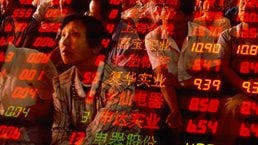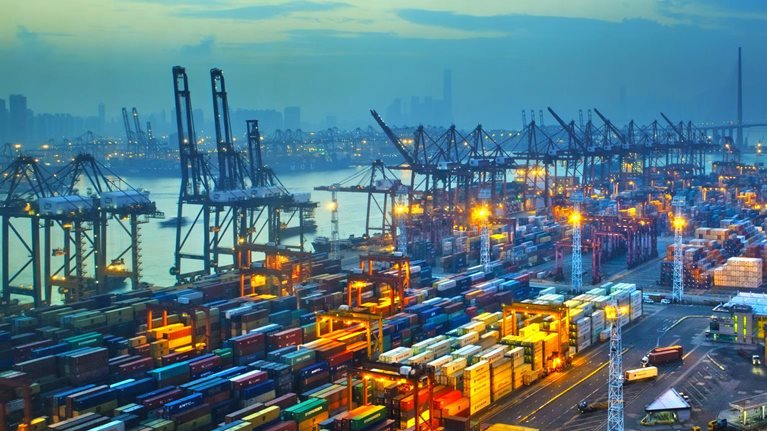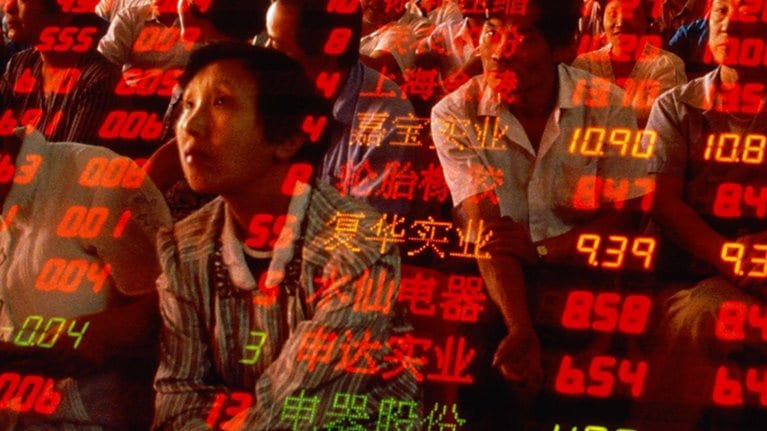On July 1, Hong Kong will mark the 20th anniversary of its return to Chinese sovereignty. As we celebrate this special milestone, it’s worth reflecting on what we’ve achieved over the past two decades, and, more important, where we’re headed in the future.
By almost any major measure of economic performance, Hong Kong is the envy of the world. In 2016, Hong Kong companies broke new records in revenues and profits. Unemployment hovers at an incredibly low 2.5 percent. GDP continues to climb each year at a steady rate of 2 to 3 percent, a modest but respectable number compared with other mature markets.
Stay current on your favorite topics
And for a city with just 7.3 million people, Hong Kong clearly punches above its weight when it comes to international rankings: number one in economic freedom, says the Heritage Foundation. Number two in flows of goods, services, and finance, says the McKinsey Global Institute.
Our students are among the highest performers in the world. Hong Kong students ranked second in mathematics and reading, and ninth in science, in the widely regarded Programme for International Student Assessment (PISA) scores, the international benchmark published by the Organisation for Economic Co-operation and Development (OECD). A number of our universities regularly place in the top 100 in global rankings.
To be sure, there are pressing challenges. Like other leading metropolises such as London or New York, the gap between rich and poor is widening. At 0.539, Hong Kong’s Gini coefficient is among the highest in the world.
Housing costs keep climbing higher. The government estimated in 2015 that more than 200,000 people live in subdivided flats—partitioned cubicles with an average size of 100 square feet. There is a general sentiment that upward mobility has declined for today’s younger generation. Even the middle class feels poor and left out of the economic growth.
These social issues are all top of mind for Hong Kong’s new government. As Chief Executive Carrie Lam Cheng Yuet-ngor and her team settle into office, their mandate is clear: spend more on social welfare, build more public housing, invest more in our schools, and do more to support those who are not sharing in the rewards of Hong Kong’s economic success.
But is this enough? In another 20 years, will we look back and say that we took advantage of Hong Kong’s strengths and realized our fullest potential? Or will we discover that we missed the opportunity to turn Hong Kong into one of the world’s truly great societies, one marked by technological innovation, economic prosperity, and social progress? While we are counting our successes over the past 20 years, what is not on the report card are the opportunities we have missed.
Would you like to learn more about Greater China Office?
Take education. While we celebrate our high PISA scores, our parents, students, and educators are all increasingly frustrated with our school system. We are not developing the talent base we need for the future. Shouldn’t we aspire to lead in innovating our educational methods, seek to attract the best students, and invest in developing the best teachers?
On technology, Hong Kong is missing out on the massive wave of digital-led growth that is sweeping the world. While there is a growing community of incubators and start-ups today, where are our global leading innovators and our tech companies? And what about big data and artificial intelligence: Can you name one Hong Kong company that is doing this at scale?
Or consider healthcare and medical technology. We have some of the best universities in the region, conducting leading-edge research. Coupled with China’s millions of underserved people, Hong Kong could aspire to build the world’s next hub for innovative healthcare and biotech companies.
In financial services, where we have a global competitive edge, we should be far ahead of Singapore and Shanghai. Why, ten years since the global financial crisis, are we still citing the collapse of Lehman Brothers and their mini bonds as a reason for not modernizing financial-industry regulations? Why is fintech, or financial technology, synonymous with conferences instead of actual pilots and experiments?
Let’s look at real estate. With our highly valued property companies and deep heritage in construction, Hong Kong could have been at the leading edge of sustainable building design and a leader in modern construction practices. Instead, we are mired in a debate over imported labor, and saddled with some of the highest construction costs in the world.
Hong Kong is not short of opportunities. Many of these ideas have been debated for years. The reason we haven’t progressed: we’ve been playing defense, not offense.
Let’s face it. Hong Kong has had it too easy. Why bother going out when the world comes to you? The Individual Visit Scheme has brought millions of mainland Chinese tourists to Hong Kong every year. Chinese companies’ thirst for capital and the underdevelopment of the local Chinese financial markets have made us into the world’s leading market for raising capital.
When our companies are earning a healthy double-digit return on equity at home, why expand into other markets where the risk-return equation looks less attractive? Little wonder then that we haven’t built great multinational companies.
And most of Hong Kong’s companies are not exactly jumping up and down at the opportunities that China is promoting in its much vaunted Belt and Road plan. They simply do not offer the same returns that we are used to in Hong Kong.
When graduates can easily find a job in services making HK $15,000 a month, what’s the motivation to try their luck elsewhere—especially in China, where there are millions of graduates fighting to work for just 6,000 yuan a month?
We are protecting our accumulated wealth, not investing for growth. We say that we are being prudent, but the real issue is we lack imagination. And we suffer from a “no can do” mentality.
For each of the opportunities above, experts will give you a dozen reasons why Hong Kong won’t succeed. “We can’t handle internal demand in Hong Kong already.” “The labor unions won’t allow this.” “We already have too many university students without good jobs.” “Politically this can’t be done right now.” And so on.
It’s not too late. Relative to many mature markets, Hong Kong is still growing and vibrant. In the past few years, there has already been a growing sense of urgency among the business community that Hong Kong needs to start innovating. There is a greater realization that we have been far too inward-focused.
Imagine this: in 20 years’ time, we could be a shining example of an innovative city, having reinvented ourselves, again, and become a key player in the new world order. We will have unleashed the full potential of this highly cosmopolitan city against the backdrop of China’s economic powerhouse.

What can we expect in China in 2017?
The alternative? Become an aging and divided city that continues to theorize about how much we should contribute to welfare and public housing. Discuss how to split the stagnant economic pie instead of how to enlarge it. Debate whether Singapore and Shanghai are doing better than us.
There are few cities in the world that can match Hong Kong’s opportunity set. And it’s one that is ours to lose.
A version of this article appeared in the South China Morning Post.


